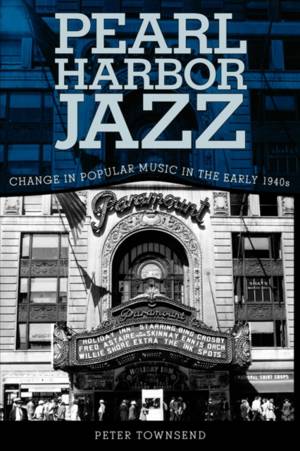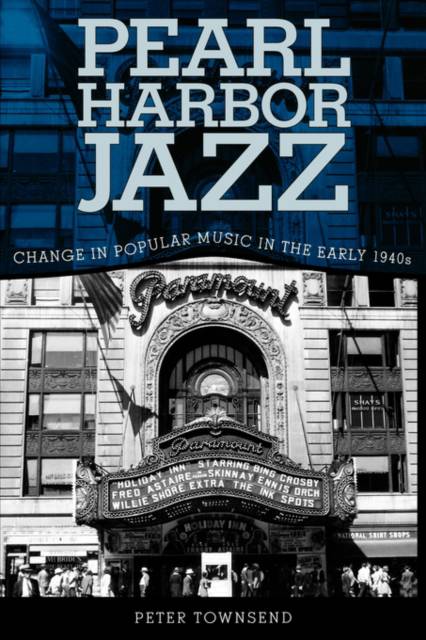
- Retrait gratuit dans votre magasin Club
- 7.000.000 titres dans notre catalogue
- Payer en toute sécurité
- Toujours un magasin près de chez vous
- Retrait gratuit dans votre magasin Club
- 7.000.0000 titres dans notre catalogue
- Payer en toute sécurité
- Toujours un magasin près de chez vous
59,45 €
+ 118 points
Description
Pearl Harbor Jazz: Change in Popular Music in the Early 1940s by Peter Townsend. This book is a study of a crucial period in the life of American jazz and popular music. Pearl Harbor Jazz analyzes the changes in the world of the professional musician brought about both by the outbreak of World War II and by long-term changes in the music business, in popular taste, and in American society itself. It describes how the infrastructure of American music-the interdependent fields of recording, touring, live engagements, radio, and the movies-was experiencing change in the conditions of wartime and how this impacted upon musical styles and hence upon the later history of popular music. Successive chapters of the book examine the impact of these changed conditions upon the songwriting and music publishing industries, upon the world of the touring big bands, and upon changing conceptions of the role of jazz and popular music. Not only the economic conditions, but also ideas were changing. The book traces a movement among writers and critics which created new definitions of "jazz" and other terms that had a permanent influence on the way musical styles were thought of for the rest of the century. The book deals in some depth with the work of a number of important artists in these various fields, including Duke Ellington, Charlie Parker, Johnny Mercer, and Frank Sinatra. It also looks at the growing presence of bebop, the rise of country music, and the contemporary musical scenes in such locations as New York and Los Angeles. The book combines detail of the day-to-day working lives of musicians with challenging views of the long-term development of musical style in jazz and popular music. Peter Townsend lectures at Manchester Metropolitan University and in the School of Music at the University of Huddersfield, England.
Spécifications
Parties prenantes
- Auteur(s) :
- Editeur:
Contenu
- Nombre de pages :
- 256
- Langue:
- Anglais
Caractéristiques
- EAN:
- 9781604732436
- Date de parution :
- 19-12-06
- Format:
- Livre broché
- Format numérique:
- Trade paperback (VS)
- Dimensions :
- 152 mm x 229 mm
- Poids :
- 394 g

Les avis
Nous publions uniquement les avis qui respectent les conditions requises. Consultez nos conditions pour les avis.






